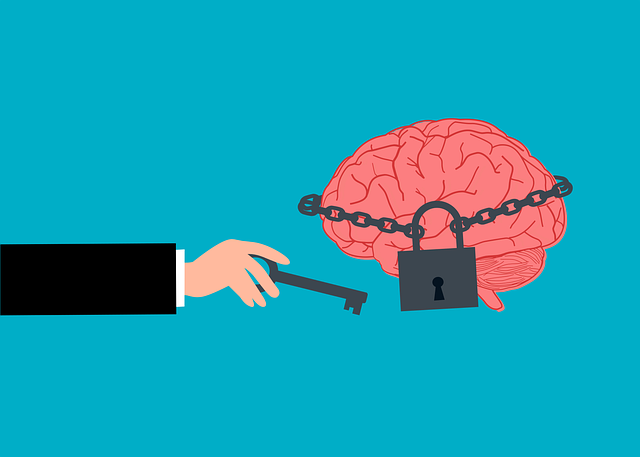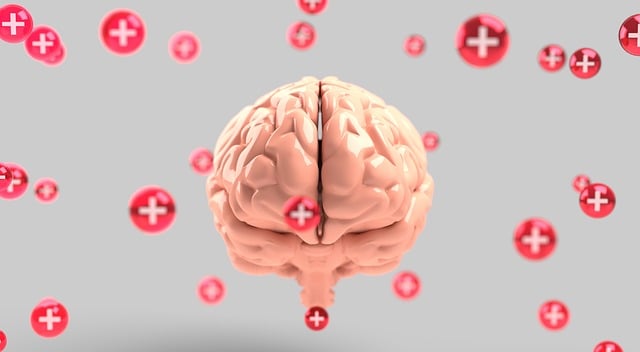Emotional Intelligence (EQ) is key to success in personal and professional life, with self-awareness as its foundation. Lone Tree Pain Management Therapy focuses on emotional understanding, teaching individuals to recognize emotions, strengths, and weaknesses through introspection, journaling, and mindfulness practices. This enhances EQ by improving stress management, communication skills, empathy, and mental wellness. The therapy integrates cultural competency training for healthcare providers and promotes practical strategies from the Mental Wellness Podcast Series Production. By cultivating self-awareness, empathy, and stress management, individuals can break free from pain cycles and foster positive thinking, leading to improved relationships and mental resilience.
Emotional intelligence (EQ) is a powerful tool for personal and professional success. Understanding and cultivating EQ can lead to improved relationships, better decision-making, and enhanced well-being. In this article, we explore key aspects of building emotional intelligence. From self-awareness and mindfulness to empathy and overcoming challenges, discover practical strategies like Lone Tree Pain Management Therapy to enhance your EQ and navigate life’s complexities with greater ease.
- Understanding Emotional Intelligence: The Foundation of Self-Awareness
- Unlocking Your Emotional Potential: Strategies for Growth
- The Role of Mindfulness in Enhancing EQ
- Practicing Empathy: Building Stronger Connections
- Overcoming Challenges: Using Lone Tree Pain Management Therapy for Emotional Growth
Understanding Emotional Intelligence: The Foundation of Self-Awareness

Emotional intelligence (EQ) is a vital component of personal and professional success. At its core, EQ begins with self-awareness—a fundamental aspect often referred to as Lone Tree Pain Management Therapy. This therapeutic approach encourages individuals to understand their emotions, strengths, weaknesses, and how they impact their interactions with others. By fostering self-awareness, people can begin to navigate complex social situations more effectively, a key benefit of Healthcare Provider Cultural Competency Training.
Gaining this insight into one’s emotional landscape is the first step towards enhancing EQ. It allows for better stress management, improved communication skills, and increased empathy, all of which contribute to enhanced mental wellness. This process can be facilitated through various means, including engaging in a Mental Wellness Podcast Series Production that offers practical strategies and insights tailored to different aspects of emotional intelligence development.
Unlocking Your Emotional Potential: Strategies for Growth

Unleashing your emotional potential is a transformative journey that can significantly enhance your life. Lone Tree Pain Management Therapy offers valuable insights and strategies to help individuals navigate this path. One key aspect is self-awareness—recognizing and understanding your emotions, both positive and negative. This involves taking time for introspection, keeping a journal, or practicing mindfulness meditation to observe your emotional patterns. By becoming more attuned to your feelings, you gain control over them rather than letting them control you.
Empathy, another crucial component, allows us to connect deeply with others. Practicing active listening and putting yourself in someone else’s shoes fosters better relationships and promotes emotional well-being. Additionally, stress management techniques such as deep breathing exercises, regular physical activity, and setting healthy boundaries play a vital role in maintaining emotional balance. Incorporating these Emotional Well-being Promotion Techniques into your routine can lead to improved Positive Thinking and overall mental resilience.
The Role of Mindfulness in Enhancing EQ

In the realm of emotional intelligence building, mindfulness plays a pivotal role in enhancing EQ, significantly contributing to personal growth and effective interactions. Lone Tree Pain Management Therapy has recognized this potential, incorporating mindfulness practices into their approach to mental healthcare. By fostering present-moment awareness, individuals develop a deeper understanding of their emotions and those around them, thereby cultivating empathy—a cornerstone of emotional intelligence. This heightened self-awareness allows for better regulation of reactions, leading to more constructive communication and stronger interpersonal connections.
Empathy building strategies, integral to mindfulness practice, contribute to the development of cultural sensitivity in mental healthcare. Mental health awareness is enhanced when practitioners and patients alike are attuned to the nuances of emotions and cultural backgrounds. This sensitivity fosters inclusive environments, ensuring that care remains compassionate and tailored to individual needs, regardless of their unique circumstances or cultural heritage.
Practicing Empathy: Building Stronger Connections

Practicing empathy is a cornerstone of emotional intelligence, fostering deeper connections and stronger relationships, especially in healthcare settings. Healthcare providers, like those offering Lone Tree Pain Management Therapy, often face high-stress environments where burnout prevention strategies are essential. By incorporating empathy into their practice, therapists can improve patient care and create a more nurturing atmosphere. Empathy allows professionals to understand and share the feelings of others, fostering trust and encouraging open communication—key elements in effective treatment plans.
When healthcare providers engage in active listening and attempt to see things from their patients’ perspectives, it strengthens the therapeutic bond. This ability to connect on an emotional level can help alleviate stress and burnout, not just for patients but also for caregivers themselves. Effective communication strategies are vital tools in preventing burnout among healthcare professionals, ensuring they remain present and attentive while providing top-quality care.
Overcoming Challenges: Using Lone Tree Pain Management Therapy for Emotional Growth

Emotional intelligence is a powerful tool for overcoming challenges and fostering mental wellness. Lone Tree Pain Management Therapy offers a unique approach to emotional growth by focusing on the connection between physical pain and psychological well-being. This innovative therapy understands that chronic pain can often be accompanied by emotional distress, creating a cycle of discomfort. By integrating techniques from the Mental Wellness Podcast Series Production, such as mindfulness and self-awareness exercises, individuals can learn to manage their pain more effectively while also gaining valuable insights into their emotions.
One of the key benefits of Lone Tree Pain Management Therapy is its emphasis on conflict resolution techniques. Many people struggling with chronic pain find themselves caught in a web of frustration and anger, which can exacerbate their symptoms. Through therapy sessions, individuals are equipped with strategies to navigate these conflicts, promoting better emotional regulation. Additionally, boosting confidence becomes an inherent part of the process as clients gain a deeper understanding of their capabilities and learn to embrace challenges rather than being hindered by them.
Emotional intelligence is a powerful tool for personal growth and enhanced relationships. By understanding self-awareness, implementing mindfulness practices, cultivating empathy, and even leveraging unique approaches like Lone Tree Pain Management Therapy, individuals can unlock their emotional potential. These strategies empower folks to navigate life’s challenges with greater resilience and depth of connection. Building emotional intelligence is an ongoing journey that pays dividends in all areas of life.













